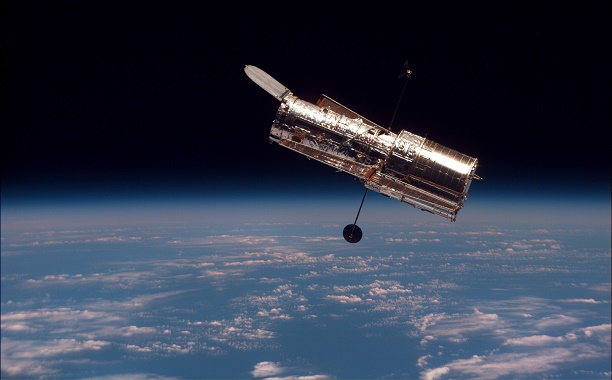According to Space.com, Hubble has revolutionized astronomers’ understanding of the universe since its April 24, 1990 launch. Hubble helps scientists search for exoplanets, which were first discovered two years after the famous telescope’s launch. Hubble also charts the universe’s accelerating expansion, a surprise discovery the instrument helped make in 1998.
Also astounding, from a technological perspective, is that Hubble continues to work perfectly, 25 years after launch, thanks to five different servicing missions that were performed between 1993 and 2009. Marc Postman, an astronomer at the Space Telescope Science Institute in Baltimore, which manages Hubble’s science operations, says “We knew it would be around for quite a while.”
We knew it would be around for quite a while, but I don’t know anyone [who] predicted a 25-year life or 30-year life.
The instrument’s immediate successor, NASA’s James Webb Space Telescope (JWST), will launch in 2018 at a higher vantage point than Hubble. This vantage point will allow the JWST to look in all directions for longer periods than Hubble, which is currently useless for half of its 90-minute orbit. The tradeoff is that JWST is unlikely to ever be serviced by people, said astronomer Pat McCarthy, a member of the science team for Hubble’s Wide Field Camera 3 instrument, which spacewalking astronauts installed in 2009.
As for the fate of he Hubble, according to Deep Astronomy, it was designed to be serviced by the space shuttle. But the space shuttle fleet was retired in 2011, and the Hubble hasn’t had a repair job since that 2009 mission. At some point, under the laws of entropy that dominate the cosmos, the Hubble will begin to deteriorate — for example, losing its navigational ability as its gyroscopic sensors fail one by one.
NASA said this week that, based on current orbital projections, the Hubble is expected to reenter the atmosphere “around 2037.” The telescope has no means of propulsion.
In other Astronomy news, watch The Merging Of Two Black Holes
























